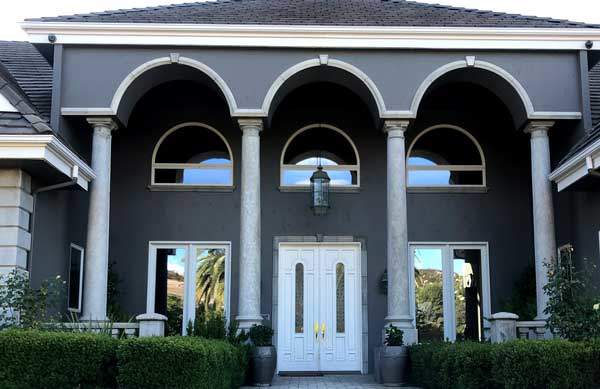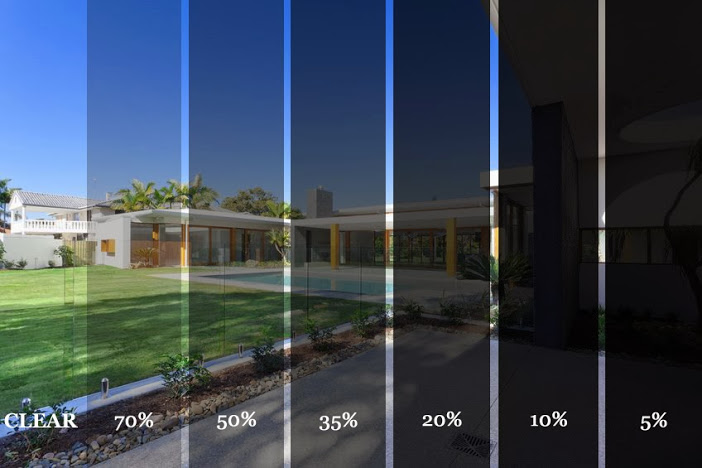Upgrade Your Home with Specialist Residential Window Tint Providers
Upgrade Your Home with Specialist Residential Window Tint Providers
Blog Article
Just How Residential Home Window Tinting Enhances Your Home's Energy Performance
Residential window tinting offers an engaging service for property owners seeking to enhance power effectiveness within their living rooms. By applying specialized movies to windows, it properly reduces warmth transfer, thereby supporting interior temperature levels and reducing the requirement for too much home heating or air conditioning.
Comprehending Home Window Tinting
Understanding home window tinting is necessary for property owners looking for to improve both convenience and energy efficiency in their home. Residential Window Tint. Home window tinting includes the application of a slim film to the interior or exterior surface area of glass windows. This film can considerably modulate the quantity of sunshine and heat that gets in a home, thus influencing interior environment conditions
There are different types of home window tinting films offered, each with unique residential or commercial properties. The performance of home window tinting is often measured by its Visible Light Transmission (VLT) percentage, which shows exactly how much light can pass via the film.
Benefits of Power Efficiency
Window tinting not just enhances appearances but also plays a substantial role in enhancing energy performance within residential rooms. By decreasing heat transfer with home windows, tinted films produce an extra secure indoor climate, which can bring about significant reductions in energy consumption for cooling and heating. This energy performance translates right into lower energy costs, supplying house owners with considerable lasting financial savings.

Furthermore, home window tinting boosts the convenience of living spaces. By decreasing glare and obstructing unsafe UV rays, tinted home windows produce an even more pleasant atmosphere, which can result in improved wellness for passengers. The defense against UV rays likewise helps maintain furnishings and flooring from fading, adding to the durability of family products.
Just How Tinting Works
Tinting movies operate through a combination of sophisticated materials and modern technologies developed to manage the amount of solar power getting in a home. Mostly composed of polyester, these movies frequently incorporate metal or ceramic fragments that reflect and take in warm. This twin ability permits them to significantly decrease the penetration of ultraviolet (UV) rays and infrared radiation while permitting noticeable light to travel through.
The performance of home window tinting is gauged by its solar heat gain coefficient (SHGC), which shows just how much solar energy is transferred through the home window. Lower SHGC worths are more suitable as they represent better warm being rejected. In addition, home window colors can include a variety of tones, permitting property owners to personalize their aesthetic preferences while improving energy efficiency.
Furthermore, these films work as an obstacle, stopping heat loss during colder months by mirroring indoor warmth back into the living space. This thermal insulation effect complements the air conditioning benefits gained throughout warmer months, adding to a well balanced interior environment year-round. By managing solar power effectively, residential home window tinting not just improves comfort however likewise plays a crucial function in lowering power intake and decreasing utility costs.
Picking the Right Color

There are different kinds of window movies readily available, including colored, metalized, and ceramic. Colored movies are cost-efficient but might have restricted toughness. Metalized movies provide far better heat denial however can disrupt electronic signals. Ceramic films supply exceptional heat control without endangering presence and are extremely sturdy, making them a preferred option.
Noticeable light transmission (VLT) is another critical factor, as it suggests the quantity of natural light that can pass via the colored glass. Home owners must choose a color with a VLT that matches their illumination preferences while still supplying adequate glare reduction.
Additionally, examining the solar warmth gain coefficient (SHGC) can assist figure out exactly how well a color can obstruct heat from sunlight. A lower SHGC shows better warmth control, inevitably improving energy performance.
Installment and Maintenance Tips
Proper installation and maintenance are vital components in maximizing the benefits of domestic home window tinting. Experts also make use of specialized devices and strategies, which can improve the resilience and effectiveness of the color.
Complying with setup, maintenance is important to extend the life here are the findings of the home window film. It is recommended to wait a minimum of one month before cleaning the colored windows to Recommended Site allow the sticky to heal completely. When cleansing, make use of a soft cloth and a gentle, ammonia-free cleaner to avoid harming the film. Stay clear of abrasive materials that could scrape the surface area.
In addition, routine assessments are helpful. Look for any kind of peeling or bubbling, which can suggest inappropriate installment or use gradually - Residential Window Tint. Addressing these problems quickly can protect against additional damage and maintain power performance. By adhering to these installation and maintenance pointers, home owners can ensure their window tinting remains to give considerable energy cost savings and convenience for years ahead.
Conclusion
In conclusion, property window tinting serves as a reliable option for improving energy effectiveness within homes. By reducing heat transfer and obstructing unsafe UV rays, window movies add to reduce power intake and enhanced indoor convenience.
Home window tinting includes the application of a slim film to the inside or exterior surface of glass home windows. By reducing warmth transfer via home windows, colored films develop a much more stable interior environment, which can lead to considerable decreases in energy usage for heating and air conditioning.The effectiveness of window tinting is determined by its solar warm gain coefficient (SHGC), which indicates exactly how much solar power is sent through the window. By taking care of solar power effectively, household window tinting not just enhances comfort yet likewise plays an essential duty in minimizing power intake and lowering utility expenses.
By minimizing warmth transfer and blocking dangerous UV rays, click over here window movies contribute to decrease energy usage and improved interior convenience.
Report this page